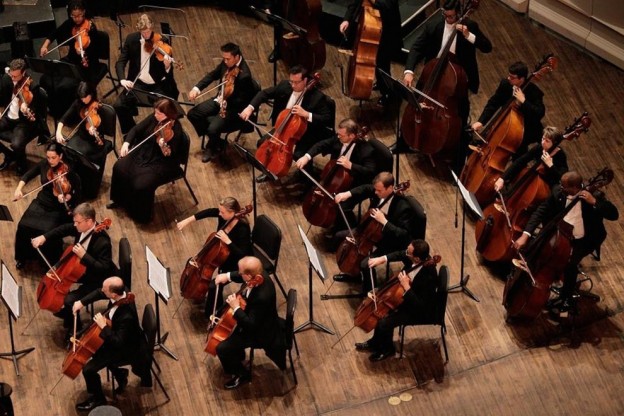EarShot Naples Philharmonic to take place May 25-26, 2016
Artis–Naples’ Hayes Hall
The JCOI Readings by the Naples Philharmonic will take place at Artis-Naples Hayes Hall, with mentor composers Vincent Mendoza (composer/arranger), James Newton (JCOI Director; University of California, Los Angeles), and Derek Bermel (Artistic Director, ACO), conducted by Naples Philharmonic Assistant Conductor Yaniv Segal.
These composers were selected from a field of 34 nationwide based on their excellent musicianship, originality, and potential for future growth in orchestral composition. Each of the 34 participated in JCOI’s first phase, a summer intensive last August at the UCLA Herb Alpert School of Music, where they studied new scores and compositional techniques, as well as best practices in orchestration, notation, score preparation, and contemporary performance. Over the course of the last year, sixteen of these composers have been writing new works, taking what they learned in the first phase and putting it into practice. Their pieces will be played and rehearsed, and refined through a series of workshops and critical feedback sessions with the orchestra players, conductors, and mentor composers.
The EarShot Naples Philharmonic New Music Readings are the first of three such Readings programs taking place around the country through EarShot, the National Orchestral Composition Discovery Network. In addition to the four composers in tonight’s Reading, a dozen composers will have their music workshopped and performed by American Composers Orchestra this June and the Buffalo Philharmonic Orchestra in September.
JCOI is a new development in the jazz field. While many jazz composers seek to write for the symphony orchestra, opportunities for hands-on experience are few. JCOI provides new resources for both jazz and classical music, promoting the emergence of composers trained in both jazz and new orchestral techniques. The program broadens the scope of jazz education and presents opportunities for career development—and what’s more, audiences are presented with exciting new models for musical exchange. The Readings represent not only the culmination of the Jazz Composers Orchestra Institute, but also a glimpse into a future of new possibilities—a future where “jazz” composers embrace the “symphony” orchestra, and the orchestra embraces them.


